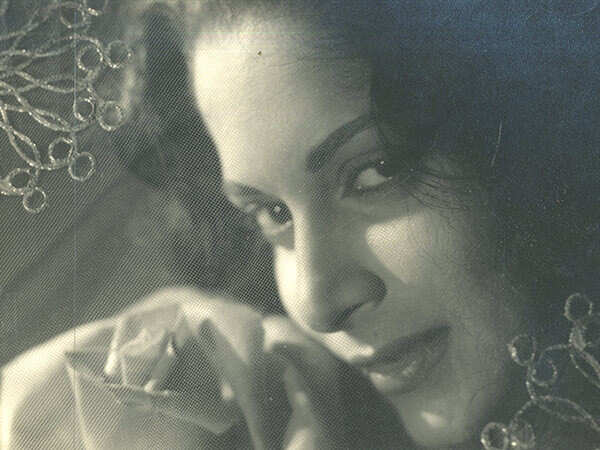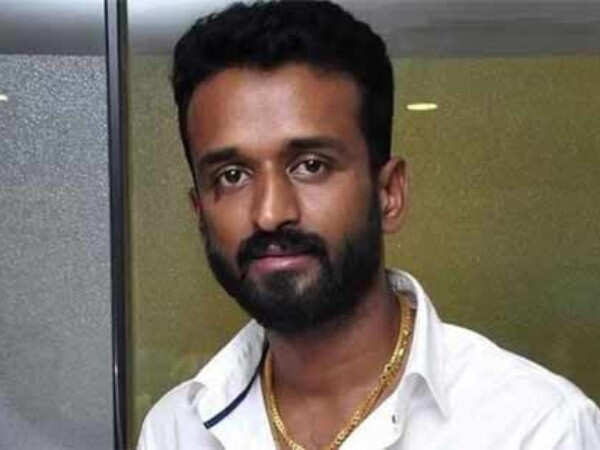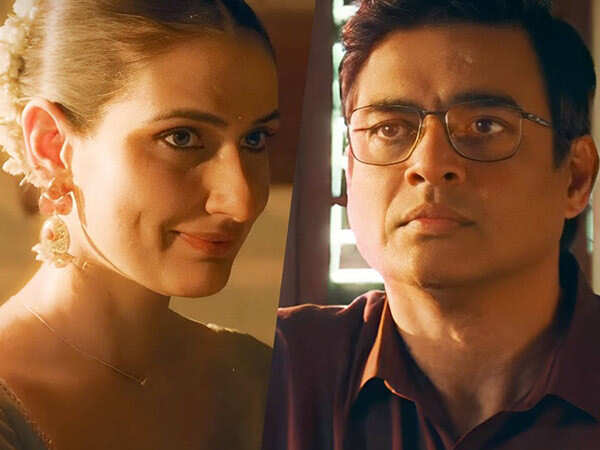Waheeda Rehman: I was never considered a glamorous star because of Pyaasa
8 min read
She was Guru Dutt’s favourite actress and he moulded her into an exceptional artiste. From Pyaasa to Kaagaz Ke Phool, he grew in stature till her name become synonymous with intense portrayals. In time she made a graceful transition from heroine to character roles. But soon action-packed films took over and the gentle, soft-spoken Waheeda seemed out of place in this era of aggression. So she decided to opt out of films. And the dignified actress was entirely content with life in Bangalore even as producers and directors continued to woo her. She refused them all. until Mahesh Bhatt mode her on offer she couldn’t resist the role of Aparajita a woman who, must live her life on her own after her husband’s death. In a sensitive interview the actress talks about her long-awaited comeback…
After a gap of three years, why did you decide to make a comeback with a TV film?
Swayam is actually a feature film which will be premiered on television and I’m very happy with my role in it. Besides, I’d rather do something worthwhile for TV than something useless on the big screen.
Why did you stay away from acting for three years?
I got fed up with the repetitive roles I was being offered. It was invariably the same story: that of the father being murdered and then the children growing up to avenge him and the widowed mother steering them through all kinds of hardships. It all seemed very stale and mechanical. Also, our films, male-oriented as they are, find little use for actresses; the story revolves around the men. Besides, after a certain age actresses are not readily accepted as heroines, so Swayam was a godsend.
How did you get the role?
It all happened very suddenly. One day Mahesh rang up Bangalore to talk to Shashi, my husband. When we heard that the call was from Bombay, Shashi presumed that it was for me, but Mahesh wanted to speak to him. Actually, knowing I was reluctant to accept films he wanted Shashi to convince me that he was offering a good role and that I should accept it. An hour later, Mahesh rang up again and told me that I wouldn’t regret doing the film and that he’d come over and narrate the story to me. Within a week Akash Khurana and he came over and for nearly four hours J listened to the script without any interruption. Any actress in her right mind wouldn’t dream of refusing this role.
Isn’t this your first film with Mahesh Bhatt?
Yes, but Mahesh is no stranger to me. We’ve often met as friends at Salim Khan’s place and I have also been seeing his films.
How do you find him as a director?
After a long time I have come across a director who is sensitive and who can relate to human emotions. In Saaransh I felt that he had the depth of Guru Dutt and the film left a deep impact on me. One can’t say that about many films today. The entire unit of Swayam is also totally involved, sab bahut pyaar our lagan se kaam kar rahe hain. There is no awkwardness in working with all of them, one doesn’t feel like an outsider.
As an actress of calibre did you ever try to suggest to makers that more woman-oriented films be made?
No, temperamentally, I’m not pushy enough to do something like this. We would talk about it on the sets, but we were aware that woman-oriented films got a different price from male-oriented ones and that they also ran less. Earlier, there were films in which the title role was played either by Meena or Nargis and even Jaya did films like Guddi and Uphaar, but later, the trend changed to violence and women had less and less to do in such films. The main characters were the hero and the villains. Yet although Guide had Dev Anand in the title role, I felt that Rosie’s was a central character too. It was not hundred per cent my film, but Khamoshi was and now Swayam is totally my film.
Do you identify deeply with the characters you play?
After Khamoshi I continued to feel low and depressed, rarely does one come across such a deep characterisation; in Swayam again, I find I can identify completely with the character of Aparajita. She loses her husband, but before his death he tells her that she must live life on her own and not depend on her children. After he is gone, she feels his presence throughout and he is a source of inspiration to her. Khuda na khasta if such a situation does arise haath paav chalte rahne chahiye. The new woman is aware of this and she does keep herself occupied either by working, or doing social work—taking up some creative line. Nobody is totally useless and education is not required for cooking or making papads or pickles at home. One should have the moral courage. The attitude that ‘Kaam kya karna, bura lagta hai’ should be done away with and maybe this film will help people realise that one must have one’s own identity and the ability to survive with dignity even if one loses one’s partner.
Has working exclusively on one film helped you to express yourself better in the role of Aparajita?
It’s definitely helped me. In the thirty-two years of my film career this is the first time that I am doing a film from start to finish. I was given the full script in advance along with the dialogue, so I didn’t waste time memorising lines on the sets. The unit is very organised and that’s helping us a great deal too. I’ve always wanted to do films in this manner, but it isn’t the normal trend in India. Very rarely do you find an actor or an actress doing just one film at a time. I did do Pyaasa, CID, even Reshma Aur Shera was planned the same way, but Sunil had some problems. I’ve always wanted to do one film at a time but I was always reminded that I wasn’t in Hollywood! I said ‘yes’ to the Swayam role right after hearing the script it was the first time I’d agreed so quickly and even my husband was very surprised at the swiftness with which I agreed.
Do you miss being a busy actress?
I’m a funny person; I love my work but I’m a quite person it’s only now that I’ve become talkative. Probably after marriage one gains maturity and confidence. I am also very content. I get satisfied easily; if I get a role, well and good, but if I don’t, it doesn’t bother me. But I do feel happy that even now people choose to contact me in Bangalore.
Of late they’ve been streaking your hair in every film. Do you feel old?
No, I don’t feel old. Isn’t that awful? One should feel one’s age. I don’t feel like a teenager, but I don’t feel old either, maybe that’s because I’m an active person. When our family had gone to Europe and America for our summer holidays, I saw a very beautiful garden there and I started screaming and screaming with excitement. It was so beautiful, I couldn’t hold myself. But then I told myself that I must behave and act my age! Here, because I am a film actress and in the public eye, I am more inhibited. If you behave like this, people consider you loud. My husband was also surprised at my uninhibitedness. In fact, he told me, he’d always thought of me as a cool, controlled person, that when he’d given me my engagement ring I’d looked at it coldly and remarked that it was nice. I asked him, ‘What did you want me to do, scream and shout at such a late stage in my life?’
You were always thought of as a very reserved person…
I’ve mostly been serious at work because I like to concentrate and listen to what the director has to say and what he wants me to do. In any case, I was never considered a glamorous star, probably because of Pyaasa I was thought of as a serious artiste.
Do you think that the film industry changes people?
People do change. Often, they start believing in their roles. Seeing themselves on screen they start believing that this is the real person and they lose sight of their real self in this false image.
Did that happen with you too?
I’ve always had a practical side to me. Once my shooting is over, I leave the character behind me. There are no pictures of me in our I house; in fact, I don’t even have the cassettes of my films, although at times I do feel that I should have at least some of the classics. But I’m sure if I saw my movies again and again I’d get bored and probably find fault with my performances too.
Do you think that films draw considerably from real-life experiences or are most films mere fantasy, a dream-world?
Certain cinematic liberties are allowed, but much of what we see does happen even in real life. In Swayam, Aparajita has a nightmare, a kind of premonition about her husband’s death and even in real-life situations you do get dreams which trouble you, or one gets an uncomfortable feeling which seems to convey a message. One doesn’t want to think about or accept it. I had felt very uneasy before my mother’s death and I was very scared.
In the film, after the husband’s death, his wife does not want to get involved in unnecessary I rituals, which is also what her husband wanted, but her son-in-law’s mother insists that they must be performed, and there is a squabble over it. Such things do happen in real life too.
Do you believe in women’s liberation?
A man and a woman can have a relationship I on an equal basis, but it is very rare. It isn’t necessary that either should be totally dominant. My father used to give a lot of importance to my mother and he always consulted her in decision-making, etc. It’s the same with my husband and me. It is possible if a husband respects his wife and knows her worth. I think that basically a man’s ego is much more than a woman’s by nature women are warmer and right from the time I of her birth a woman is either listening to her parents or her husband and then her children. She is more adaptable and with marriage almost everything changes for her.
A man has to make fewer changes, much of everything is the same for him, his career, home, friends, etc. However, a woman accepts change almost automatically and maybe even faster than men do; yet, if the couple so desire, they can have a relationship on an equality basis.
Has Swayam affected you in any way?
The film has reinforced my desire to donate my eyes. In the film, the husband donates his eyes before his death. I think it’s a very noble act because one of the worst things is not being able to see this beautiful world.
The next shot is ready and she is called away to film a haunting song which expresses so I much of Aparajita’s loneliness after she loses I her husband… Kaise, kaise raat kati, turn ko bataoon kaise…We bring back a 1989 interview with Waheeda Rehman Continue reading …Read More






